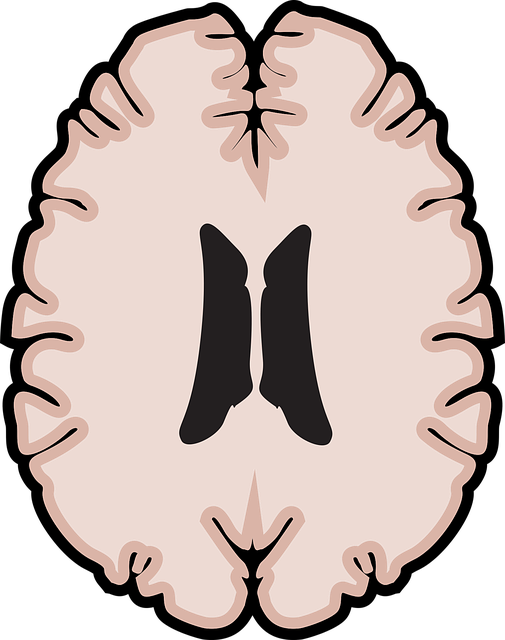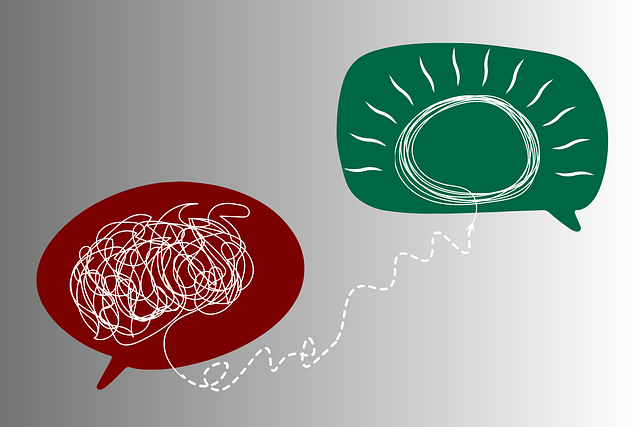Mindfulness meditation is a powerful tool for healing and personal growth, especially beneficial for trauma or abuse survivors in Colorado Springs. Rooted in ancient Buddhist teachings, it helps individuals cultivate awareness, observe thoughts and feelings without judgment, and develop a non-reactive mindset. Through focused breathwork, bodily sensation awareness, or specific objects, mindfulness meditation supports emotional healing, reduces anxiety and stress, and fosters resilience among survivors. Community outreach programs make mindfulness-based therapies accessible, teaching effective stress reduction and emotional regulation techniques. Creating safe spaces within dedicated corners enhances depression prevention benefits, fostering resilience through calm introspection. Techniques like "mind over matter" encourage observing feelings without judgment, redirecting attention through breath or calming mantras. Incorporating mindfulness into daily routines offers profound healing and self-care benefits, empowering survivors to navigate life's challenges with increased resilience through Colorado Springs Abuse Survivors Therapy.
In the heart of Colorado Springs, survivors of abuse often seek healing and resilience. Mindfulness meditation emerges as a powerful tool in their journey towards recovery. This article provides comprehensive guidance on navigating this therapeutic practice. We explore ‘Understanding Mindfulness Meditation’ and its foundational role in healing. Subsequent sections delve into specific techniques tailored for Colorado Springs abuse survivors, creating safe spaces, managing emotional challenges during meditation, and integrating mindfulness into daily life for enhanced self-care and resilience.
- Understanding Mindfulness Meditation: A Foundation for Healing
- The Impact of Mindfulness on Survivors of Abuse in Colorado Springs
- Creating a Safe Space: Establishing Your Meditation Practice
- Techniques to Navigate Emotional Challenges During Meditation
- Integrating Mindfulness into Daily Life: Building Resilience and Self-Care
Understanding Mindfulness Meditation: A Foundation for Healing

Mindfulness meditation is a powerful tool for healing and personal growth, especially beneficial for those who have experienced trauma or abuse, like many survivors seeking therapy in Colorado Springs. It involves being fully present in the moment, observing thoughts and feelings without judgment, and cultivating a sense of awareness and calm. This practice has its roots in ancient Buddhist teachings but has gained prominence in modern psychology due to its incredible impact on mental well-being.
By focusing on the breath, bodily sensations, or specific objects, mindfulness meditation helps individuals develop a deeper understanding of their thoughts and emotions. It encourages a non-reactive mindset, allowing survivors to process traumatic memories and responses more effectively. Regular practice can lead to significant improvements in emotional healing processes, anxiety relief, and stress reduction methods, ultimately fostering a sense of resilience and inner peace.
The Impact of Mindfulness on Survivors of Abuse in Colorado Springs

Mindfulness meditation has emerged as a powerful tool for survivors of abuse in Colorado Springs, offering a path to healing and recovery. The impact of mindfulness on this population is profound, helping individuals process traumatic experiences and cultivate a sense of safety and calm. Through dedicated practice, survivors can develop coping skills that enhance their mental wellness coaching programs development, enabling them to navigate life’s challenges with resilience.
Community outreach program implementation has played a crucial role in making mindfulness-based therapies accessible to those in need. These initiatives ensure that survivors have opportunities to engage in group settings, fostering social connection and support while learning effective techniques for stress reduction and emotional regulation. As a result, many Colorado Springs abuse survivors are finding solace and empowerment through the integration of mindfulness into their therapeutic journeys.
Creating a Safe Space: Establishing Your Meditation Practice

Creating a safe space is an integral part of establishing your mindfulness meditation practice, especially for those who may have experienced trauma or are recovering from mental health challenges, such as those seeking Colorado Springs abuse survivors therapy. It involves setting aside a dedicated area where you can feel secure and comfortable during your meditative moments. This sanctuary doesn’t need to be elaborate; it could be a quiet corner of your home with soft lighting and soothing surroundings.
By cultivating this safe space, you’re taking a significant step towards reducing the mental illness stigma that often surrounds practices like meditation. It allows for a sense of control and empowerment, especially when transitioning from more challenging life stages or as part of healthcare provider cultural competency training. This practice can contribute to depression prevention by providing a moment of calm, helping individuals reconnect with their inner selves, and fostering resilience in the face of adversity.
Techniques to Navigate Emotional Challenges During Meditation

Navigating emotional challenges during meditation is a skill that can be cultivated with practice. For Colorado Springs abuse survivors therapy, mindfulness meditation offers a powerful tool to process and manage complex emotions. Techniques such as mind over matter principles encourage individuals to observe their feelings without judgment, fostering a sense of detachment from distressing thoughts. By focusing on the breath or a calming mantra, one can gently redirect attention away from negative emotional patterns.
Incorporating mindfulness into daily routines enhances mental wellness and stress management. It allows individuals to develop resilience in the face of adversity, promoting a deeper understanding of their emotional responses. With consistent practice, survivors can learn to approach challenging emotions with curiosity and compassion, leading to greater self-awareness and healing.
Integrating Mindfulness into Daily Life: Building Resilience and Self-Care

Incorporating mindfulness into daily routines can be a powerful tool for healing and self-care, especially for those who have experienced trauma or abuse, such as survivors seeking Colorado Springs Abuse Survivors Therapy. It’s not just about sitting quietly; it’s about cultivating a mindful awareness in every aspect of life. For instance, during morning activities like brushing teeth or commuting to work, one can practice present-moment awareness, noticing sensations and thoughts without judgment. This helps build resilience by fostering an understanding that emotions and challenges are temporary.
Journaling exercises grounded in mindfulness can further enhance mental wellness. Writing down experiences, feelings, and reflections allows for introspection and self-compassion cultivation practices. By regularly engaging in these activities, individuals can develop a deeper connection with themselves, improving their ability to navigate life’s ups and downs with increased resilience.
Mindfulness meditation offers a powerful tool for healing and resilience, especially for those who have experienced abuse. As demonstrated by studies on Colorado Springs abuse survivors therapy, integrating mindfulness into daily life can foster emotional well-being and build coping mechanisms. By creating a safe space for practice, individuals can navigate emotional challenges and cultivate a deeper sense of self-care. This article has provided guidance on understanding mindfulness, establishing a practice, managing emotions during meditation, and integrating mindfulness into everyday routines to enhance overall resilience.














